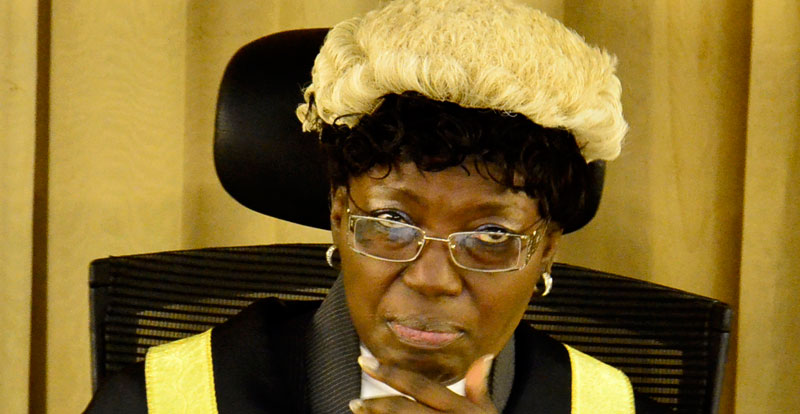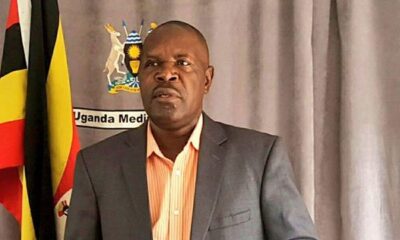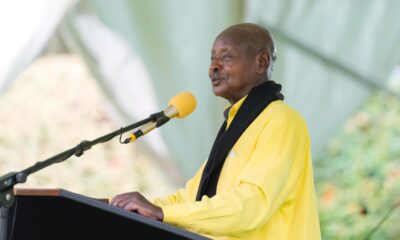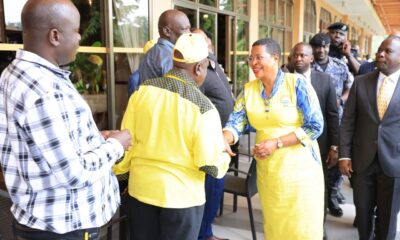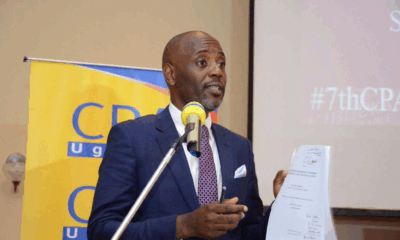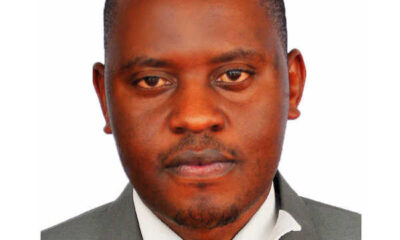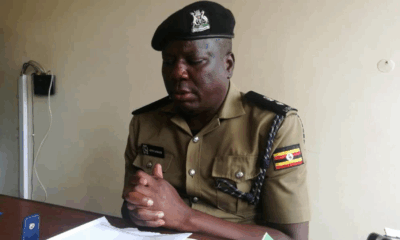News
Parliament blames executive for delays to effect Malabo commitments on agriculture

Speaker of Uganda’s Parliament Rebecca Alitwala Kadaga
The protocol is a set of commitments championed by the African Union that seeks to expand governments investments into agriculture but also one that puts it under increased scrutiny by the continental body. The protocol was adopted on April 27, 2014 in Malabo, Equatorial Guinea, as a successor to the Maputo declaration, whose realisation was futile.
One of the commitments governments signed on was to realise and maintain agricultural investments/spending by 10% of the overall budget.
View Uganda Fails on key elements of the Malabo Declaration
During a sitting of Parliament on Thursday, August 15, 2019, the Minister of State for Foreign Affairs, Henry Okello Oryem, blamed the delay on the Ministry of Justice and Constitutional Affairs.
Okello Oryem said: “Ministry of Foreign Affairs is usually at the tail end of the ratification process. We have written to the Ministry of Justice reminding them to take the necessary consultation and present the matter to cabinet for approval.”
He said once the Ministry of Justice plays its role, the Ministry of Foreign Affairs will prepare, sign and deposit instruments of ratification with the African Union.
The Deputy Attorney General, Mwesigwa Rukutana, however said that the delay has been caused by the need to examine the implications of ratifying the protocol.
“We have taken some time because we are cautious. We are looking at signing a protocol that empowers the PAP to make laws. The concern is on the weight of laws of PAP vis a vis the laws of Parliament of Uganda,” said Mwesigwa Rukutana.
He explained that several clauses in the Protocol provide that laws of PAP will be supreme to Ugandan laws.
“This is not something that we should take lightly. Before we cede our sovereignty, we must be careful and where need be, those clauses will be avoided,” Mwesigwa Rukutana added.
He asked for more time to allow government carry out consultations, saying that the delay is necessary.
Kadaga was however, irked by the responses from the two ministers saying that they have resorted to blame games.
“I am reluctant to accept your response to this issue. I think it is an insult that government comes and says that it is not me, it is the other one. As far as we are concerned, it is the Ministry of Foreign Affairs in charge of ratifications,” Kadaga said.
She added that attributing the delay to the need to consult is not convincing because government was involved in formulation of the Treaty.
“I am flabbergasted by what the government people are saying. You cannot convince us that Ministry of Justice was not part of it; and that they found the President had gone by himself and signed the document and now they are looking at what to do. The President’s signature is on that document,” said Kadaga.
She also guided that for clauses that government of Uganda has reservations over, the Protocol can be ratified with reservations.
“You say we ratify but this area we don’t agree and deposit the instruments,” Kadaga said. She added that, “In 2017 is when I came to remind government about ratifying this protocol and I am supposed to report back to PAP in September this year. What will I say?”
Lywemiyaga County MP, Theodore Ssekikubo, said it is wrong for government to feign ignorance on the processes leading to the formulation of the Treaty.
“Are you saying that the technical persons are called at the tail end? Then who is at the forefront of this process? The Ministers are trying to portray it as if the Treaty was signed haphazardly,” said Ssekikubo.
Asuman Basalirwa (JEEMA, Bugiri Municipality) said that the Ministry of Foreign Affairs should take responsibility of the delayed ratification of the Protocol.
“When it comes to signing and ratifications of treaties, the Foreign Affairs Ministry is at the forefront. The arguments being given by the ministers fall short of their obligations and expectations,” said Basalirwa.
Additional information from Parliament of Uganda Website
Comments



